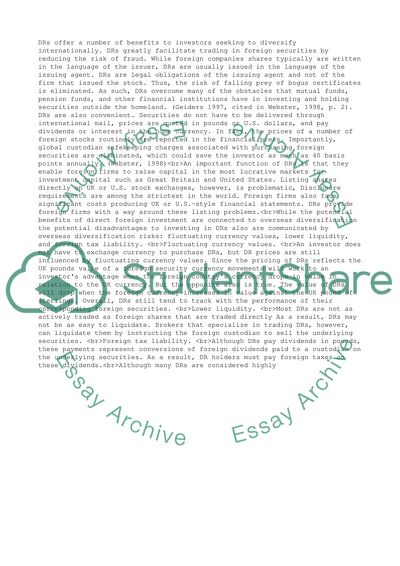Cite this document
(“Global Depository Receipts (GDR) and convertible bonds Law of Intl Essay”, n.d.)
Global Depository Receipts (GDR) and convertible bonds Law of Intl Essay. Retrieved from https://studentshare.org/business/1516613-global-depository-receipts-gdr-and-convertible-bonds-law-of-intl-finance
Global Depository Receipts (GDR) and convertible bonds Law of Intl Essay. Retrieved from https://studentshare.org/business/1516613-global-depository-receipts-gdr-and-convertible-bonds-law-of-intl-finance
(Global Depository Receipts (GDR) and Convertible Bonds Law of Intl Essay)
Global Depository Receipts (GDR) and Convertible Bonds Law of Intl Essay. https://studentshare.org/business/1516613-global-depository-receipts-gdr-and-convertible-bonds-law-of-intl-finance.
Global Depository Receipts (GDR) and Convertible Bonds Law of Intl Essay. https://studentshare.org/business/1516613-global-depository-receipts-gdr-and-convertible-bonds-law-of-intl-finance.
“Global Depository Receipts (GDR) and Convertible Bonds Law of Intl Essay”, n.d. https://studentshare.org/business/1516613-global-depository-receipts-gdr-and-convertible-bonds-law-of-intl-finance.


